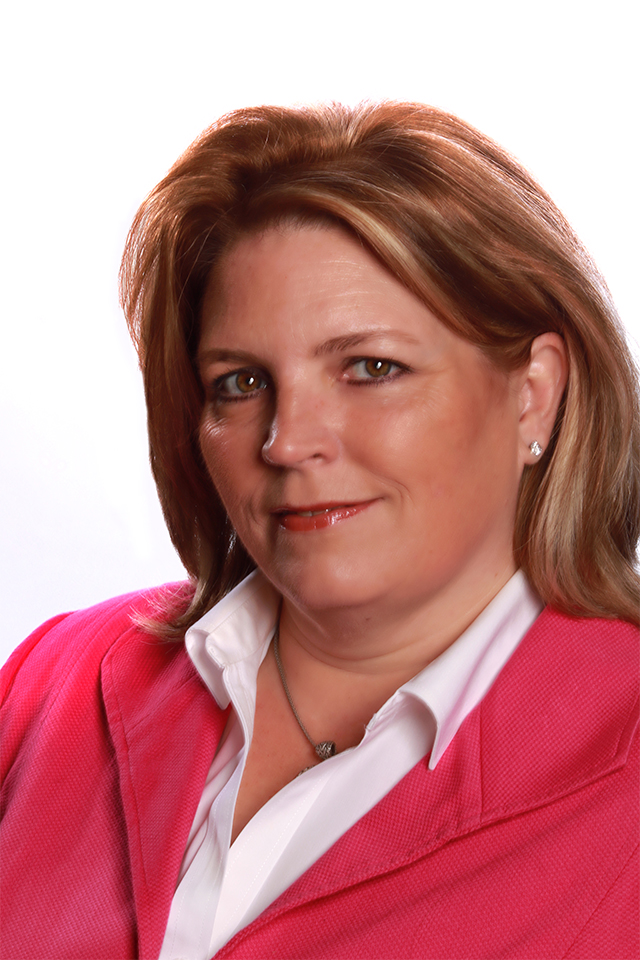For Some Brokers, Funding Never Sleeps
January 4, 2019 While holidays, including New Year’s Eve, are usually slow days for funding, for some brokers this year, New Year’s Eve was a strong day.
While holidays, including New Year’s Eve, are usually slow days for funding, for some brokers this year, New Year’s Eve was a strong day.
“New Year’s Eve was not a slow day here,” said Elana Kemp, a broker at Fundomate, in Los Angeles, who was in the office that day. “It was amusing to see so many people looking for money on the last day of the year. I’m also a procrastinator, so I can relate,” she said.
Zach Ramirez, Founder and Managing Director of ZR Consulting, LLC in Orange County, CA, said that New Year’s Eve was the second biggest funding day for his company in December, despite the fact he told his brokers that it was an optional work day, he said.
At the same time, for many other brokers, business was on the slow side, as expected. John Celifarco of Horizon Financial Group in Brooklyn, said it was a good day to organize and prepare for the new year. Meanwhile, Joe Cohen, of Business Finance Advance in Brooklyn, said he generally doesn’t go to work on major holidays.
“The holidays are to enjoy, regenerate and spend time with the family,” Cohen said. “That’s why you’re working anyway.”
How to Respond to Negative Press
January 3, 2019 Wondering what to do about negative press? deBanked spoke to some Public Relations professionals about helpful techniques to manage the situation.
Wondering what to do about negative press? deBanked spoke to some Public Relations professionals about helpful techniques to manage the situation.
“When it comes to a negative story, we advise our clients to bridge back to something they are comfortable talking about,” said Bill McCue, Executive Consultant at Indicate Media.
 Bill McCue, Indicate media
Bill McCue, Indicate mediaMcCue said this is known as “bridging.”
“If you’re asked a question about something you don’t want to talk about for whatever reason, you can use transitional phrases like ‘You know that’s an interesting point, but what the real story here is…’ or ‘What we believe is truly the most important thing to talk about is…’ And just keep bridging from a topic you’re not comfortable addressing to a topic you are comfortable addressing.”
McCue noted that politicians and professional athletes are excellent at this. His favorite example is hockey players, who never talk about themselves. When they get a question about their own performance, they always “bridge” to something like the strength of another player or the coach or the entire team.
McCue also advises all clients, whether they’re overcoming negative press or not, to speak in simple terms, and avoid jargon or acronyms.
“Never assume that the reporter is an expert on your industry,” McCue said. “He or she might be writing about [multiple] topics throughout a given business day. Or they may have been writing about real estate last week and now they’re writing about small business lending…So never assume a certain level of expertise.”
 Jason Geller, JMediaHouse
Jason Geller, JMediaHouseIf your industry has gotten negative press, but your company in particular has not been targeted, Jason Geller, Founder of New York-based public relations firm JMediaHouse, said that no response is often the best response.
“Unless you have established clear goals and a message you must put out, or if the allegation is serious, the best response in most cases is nothing. Ignore it,” Geller said. “Don’t give the story life. By opting out you’ve robbed it of the oxygen it needs to continue on.”
Geller also said that if the reporting contained inaccurate information, then the company must first provide the correct information to the reporter or blogger. This, he said, “opens up a great opportunity to leverage the situation and strengthen your relationship with the journalist, and to allow him or her to get to know your company and clients better.”
If a given negative story is so bad that it truly warrants a response, Geller said that it’s critical first to research the writer or blogger before responding.
“What have they written about in the past? Do they have a history of putting out negative commentary? Have they had a bad experience with your product or brand? Once you have the answers to these questions, you’ll be able put together a much more concise and educated response,” Geller said.
How a Computer Game Master Applied His Talents to Online Lending
December 28, 2018Eden Amirav is co-founder and CEO of Lending Express. The 29 year old spends his days trying to grow his company, an online lending platform for small businesses. But about 15 years ago, as a teenager in Israel, he spent his evenings and school breaks fighting orcs, defending construct units and mostly defeating enemies in a fictional world called Azeroth. He was a master player of the computer game, Warcraft III, released in 2002. But calling Amirav “a master player” is even an understatement since Amirav was the master player in his country. He was Israel’s #1 champion in Warcraft III for four consecutive years from 2003 to 2006.
Amirav started when he was about 12 and by the time he was 14, he became his country’s best competitive player. “I was very nervous,” Amirav said about the final game of his first national tournament. He was 14 and his opponent was 18.

“I saw him as a real adult,” Amirav said.
His family and friends were among more than one thousand people watching the final game in an auditorium – rooting him on as they observed the virtual duel projected on a big screen above the stage.
“I was an underdog and my winning was a big surprise,” Amirav said. “It was a shock when I won the tournament because I was very young.”
Amirav played the game as the humans (as a opposed to the race called the “orcs”) and his chosen hero was Archmage, known for its ability to “regenerate sorceresses,” among other things. If this makes absolutely no sense, you’re not alone.
 What is clear, though, is that Amirav said that his mastery of Warcraft III helped him years later when he started creating companies.
What is clear, though, is that Amirav said that his mastery of Warcraft III helped him years later when he started creating companies.
“I think the most direct connection between gaming and becoming an entrepreneur is speed,” Amirav said. “To play [the game] on a professional level you have to be very quick with computers. Having those skills led me to programming…and when you’re working on a startup and developing code, if you do this stuff very quickly, you can accomplish a lot in a shorter time than your competition, [which] really gives you an advantage.”
Amirav said that in his heyday as a computer gamer, he performed more than 200 actions per minute. (That means either clicks on the mouse or taps on the keyboard.) Amirav has used his ability to move fast to expand Lending Express rather quickly in the U.S. The platform, which connects small business owners to funders, launched first in Australia in October 2016. In June of this year, the company announced its official entrance into the U.S. market, and Amirav said that Lending Express has assisted in funding almost as much volume in the U.S. in a little over six months as it has in Australia in over two years.

He said he expects the U.S. to surpass Australia in funding volume in 2019 and he plans to grow its U.S. office, which is now a one-person operation in San Matteo, CA.
Also, Amirav said that they should be announcing shortly $100 million in funding facilitated by Lending Express. He said their total volume is about $98 million right now.
Even though Amirav competed one-on-one, he did not practice alone. In fact, he said he was always part of what he called a “clan,” where gamers would practice together. Now, instead of practicing with a clan, Amirav works with and leads a team of more than 30 employees at the Lending Express headquarters in Tel Aviv.
“You get to know these people and it’s like a band,” Amirav said of the his gaming clan. “You need everyone to be playing at the right tempo.”
Editor’s note: A profile on Amirav in Forbes incorrectly attributed his gaming background to World of Warcraft. That is another game with an entirely different style of play and objectives. Amirav was a champion of Warcraft 3, a Player vs. Player (PvP) game format. World of Warcraft is a Massive Multiplayer Online Role Playing Game (MMORPG).
Newtek Hosted Uncommon Investor Call Yesterday
December 27, 2018Newtek Business Services Corp. (NASDAQ: NEWT) CEO Barry Sloane held a conference call at 8:30 a.m. EST yesterday morning to address investors.
“This is somewhat of an unorthodox call, the day after Christmas,” Sloane said. “But given a lot of the events in the market with tremendous market nervousness, I wanted to speak to as many investors as I could.”
The call largely served to mollify concern about the continued drop in the Newtek stock price over the last month and into the holiday weekend. On November 28, the Newtek stock was $21.72 and on December 24 it was $16.04. This drop was largely in line with the rest of the stock market which experienced historic lows on Christmas Eve.
Sloane explained to deBanked that Newtek had, up until recently, been part of the KBW High Dividend Yield Financial ETF index. But on December 14, the index announced they would rebalance and sell holdings of Newtek. Sloane said that this announcement created selling pressure which drove the price of Newtek down to $15.68 at the close of the day on December 21. But the stock has subsequently rallied to a high of $17.81 today, despite the fact that the rest of the market has not, Sloane noted.
“We had a fantastic year,” Sloane said of Newtek on yesterday’s call, based on the first nine months of 2018. “We primarily invest in small to middle market type companies that are very stable…we feel very good about our business model [and] we’re the same company we were 45 days ago.”
Sloane also said yesterday that he believes Newtek will report stable credit from the third quarter going into the fourth quarter.
2019 Alternative Finance Predictions
December 21, 2018
With 2019 approaching, deBanked asked executives in the funding and payments industry if they had any predictions for the new year. We kept it pretty open-ended and received forecasts regarding technology, regulations, and the evolving relationship between fintech companies and banks. And yes, we also asked a few lawyers in the small business lending space for their two cents. Below is what they had to say:
 “The hype around cryptocurrencies is nearly gone, and it’s time to focus on the more interesting part of it – the blockchain technology. In 2019 we expect to see first use-cases of such technology for logging and sharing data among lenders. There is a true potential for real-time data sharing which will help lenders avoid lending to clients which just took similar loans from other lenders, in a decentralized and anonymous way. This will allow the industry to overcome one of the challenges quick loan approvals bring: real time loans stacking.”
“The hype around cryptocurrencies is nearly gone, and it’s time to focus on the more interesting part of it – the blockchain technology. In 2019 we expect to see first use-cases of such technology for logging and sharing data among lenders. There is a true potential for real-time data sharing which will help lenders avoid lending to clients which just took similar loans from other lenders, in a decentralized and anonymous way. This will allow the industry to overcome one of the challenges quick loan approvals bring: real time loans stacking.”
Ido Lustig, Chief Risk Officer, BlueVine
 “We look forward to big changes coming. Four years ago banks still were not sure about Fintech firms. Now the banks are approaching alternative lenders trying to figure out various partnership options. We think in 2019 we will see banks engage in various levels of mutually prosperous partnerships…We believe new products will be launched in 2019 that will continue to support small business growth. And as the Alt Lenders are able to access cheaper cost of capital, it will give more options to small business owners.”
“We look forward to big changes coming. Four years ago banks still were not sure about Fintech firms. Now the banks are approaching alternative lenders trying to figure out various partnership options. We think in 2019 we will see banks engage in various levels of mutually prosperous partnerships…We believe new products will be launched in 2019 that will continue to support small business growth. And as the Alt Lenders are able to access cheaper cost of capital, it will give more options to small business owners.”
Robert Gloer, President and COO, IOU Financial
 Given the explosive growth of MCAs and the fact that MCAs have evolved from an early stage industry to a mainstream industry – MCAs have been around for decades – we expect regulation of the industry to become a reality. At 6th Avenue Capital, we believe regulation will be healthy for the industry and will reduce the industry’s bad actors, allowing those institutions that practice transparency and industry best practices to thrive.
Given the explosive growth of MCAs and the fact that MCAs have evolved from an early stage industry to a mainstream industry – MCAs have been around for decades – we expect regulation of the industry to become a reality. At 6th Avenue Capital, we believe regulation will be healthy for the industry and will reduce the industry’s bad actors, allowing those institutions that practice transparency and industry best practices to thrive.
As a former Chief Compliance Officer, I set up the company with regulation in mind. In fact, we are the only firm to be a member of both ILPA and SBFA, both organizations that are active participants working with regulators to help create a regulatory environment beneficial to both SMBs and SMB funders. The need for alternative credit, and access to fast capital, continues to grow and the industry is not going away with regulations. The winners in the MCA space will be those that adopt sound practices early.
Christine Chang, CEO, 6th Avenue Capital
 “We will likely continue to see state efforts to enact disclosures in MCA and small business lending transactions. We will also likely see efforts at the state level to ban practices viewed as aggressive by elected officials. These efforts will lead to a weeding out of the weaker players in the space and will strengthen the companies dedicated to compliance and customer service.
“We will likely continue to see state efforts to enact disclosures in MCA and small business lending transactions. We will also likely see efforts at the state level to ban practices viewed as aggressive by elected officials. These efforts will lead to a weeding out of the weaker players in the space and will strengthen the companies dedicated to compliance and customer service.
Catherine Brennan, Partner, Hudson Cook
 “A business slowdown (possible but hard to predict, at least by me) will test the effectiveness of algorithm-based credit granting. I am not optimistic. Mid-market banks might start to purchase MCA-type technology and try their hand at selling it, albeit at a lower cost.”
“A business slowdown (possible but hard to predict, at least by me) will test the effectiveness of algorithm-based credit granting. I am not optimistic. Mid-market banks might start to purchase MCA-type technology and try their hand at selling it, albeit at a lower cost.”
Robert Zadek, Of Counsel, Buchalter
“Older, more traditional SMBs will broaden their lending horizons. In 2017, 30% of business owners looked for a small business loan online. The 70% who didn’t are predominantly older, and more traditional in their approach to seeking financing. In 2019, we will see a more aggressive push by SMB lenders to tap into a more mainstream audience of business owners who have not been looking online for financing options. This will be driven in part by increased competition between the SMB lenders, and a larger push by those lenders to market themselves to a broader audience of SMBs.”
Charles Amadon, VP of Business Development & Strategic Partnerships, BlueVine
“In 2019, we’ll see more and more retailers offer flexible, pay-over-time financing options and promotional 0% tools to drive sales and make gifting more affordable for customers. As customers continue to look for online pay-over-time options, we can expect to see savvy [merchants] taking advantage of these trends to both improve performance and meet the expectations of the modern shopper.”
Kate Levin, Vice President of Merchant Success, Bread
“Large corporations, from card payment organizations right through to banks, are making significant investments in reinventing themselves. I think some of them will be very successful in doing this…like Marcus by Goldman Sachs and also First Data’s Clover product. These both demonstrate that long-established companies are starting to really get it right when it comes to being innovative with fintech. I believe in the next five years, we’ll see other huge companies begin to get it right with fintech.”
Simon Black, CEO, PPRO
Square Renews Effort to Become a Bank
December 19, 2018 Square has plans to refile paperwork with state and federal regulators to open a wholly owned bank in Utah, according to a report in The Wall Street Journal today. In 2017, the company applied with the Federal Deposit Insurance Corp (FDIC) for a licence to become an Industrial Loan Company (ILC) bank, but it withdrew the application at the beginning of July 2018.
Square has plans to refile paperwork with state and federal regulators to open a wholly owned bank in Utah, according to a report in The Wall Street Journal today. In 2017, the company applied with the Federal Deposit Insurance Corp (FDIC) for a licence to become an Industrial Loan Company (ILC) bank, but it withdrew the application at the beginning of July 2018.
An ILC bank can take deposits and can be owned by a non-bank. It is also exempt from certain regulations that traditional banks must follow, making the ILC bank structure highly controversial. Critics say that ILC banks are very risky because they can engage in commercial activity outside of banking, which could lose money and jeopardize the bank.
“ILC banks were meant to serve a certain type of industrial worker [in the early 1900s] that had trouble finding a commercial bank they could bank with,” said Chris Cole, Senior Regulatory Counsel at Independent Community Bankers of America (ICBA), a trade group.
“Now we don’t have that problem anymore…this [ILC bank] charter is completely outdated [and is] a loophole that should be closed so that the owners of these bank-like institutions are restricted in the same way that commercial banks are restricted,” he said.
Proponents of ILC banks, like the fintechs that seek ILC status, say that becoming a bank can better serve their customers. Under the 2010 Dodd-Frank Act, which came in response to the Great Recession, there was a moratorium on establishing ILC banks because they were deemed to be a risk to the U.S. banking system. That moratorium was lifted in 2013 and over the last several years, a handful of fintechs have applied to get an ILC bank charter license.
SoFi applied for a license and later withdrew its application in 2017 amid a scandal related to its former CEO. But its current CEO, Anthony Noto, mentioned the possibility of pursuing ILC status again at the Money 20/20 conference in October.
NelNet, which services student loans, applied for an ILC license in June of this year and later withdrew its application in October.
Ingo Money QuickConnect Allows for Push-to-Card Payments
December 14, 2018
Yesterday, Ingo Money announced the launch of Ingo Money QuickConnect, a new solution that allows companies that issue payments – including loans – to disperse funds directly to a merchant’s debit card. Ingo Money has partnered with Visa Direct to facilitate these direct payments.
This is the official announcement for a product that has been in the works for over a year. OnDeck announced its partnership with Ingo Money last October, but didn’t start using it until it was ready earlier this year, according to an OnDeck spokesperson. So far, OnDeck only uses the Ingo Money QuickConnect service to provide same-day disbursements to their line of credit customers. The spokesperson said they have seen great demand among customers for receiving money instantly.
“Ingo Money QuickConnect allowed us to get to market faster than we ever believed possible and with minimal time, cost and hassle,” said Sam Verrill, OnDeck’s Director of Product Management. “The solution has thoughtfully solved for all the pain points and hurdles to deploying a new payment solution, making it quick and easy to begin delighting customers and cutting costs with digital real time disbursements.”
Chief Product Officer for Ingo Money Lisa McFarland told deBanked that OnDeck was their first client in the lending category, and that they now have a few other lending clients, but declined to mentioned which.
“What’s exciting about Ingo Money QuickConnect is that customers can access money the minute they need it,” McFarland said. “At night, on weekends and holidays.”
The Ingo Money QuickConnect solution is also being used in other ways, including insurance companies paying claims and child support payments where the government is an intermediary. Use in payment of airlines vouchers to customers and by the IRS to people who are owed money are also being considered, according to McFarland.
“We’ve heard time and again from customers that they need to deploy a push-to-card payment solution but are intimidated by the time and effort required,” said Ingo Money CEO Drew Edwards. “Ingo Money QuickConnect removes the burden and allows a company to almost immediately begin offering real-time payments through Visa Direct, while retaining the ability to easily expand the solution later to include payments to online wallets like PayPal and Amazon or even cash out Moneygram locations.”
The Funder: From Office of One to Eighteen in Under a Year
December 13, 2018 Not even a full year in business, Velocity Capital Group announced that it has secured $15 million in financing; $5 million in a series A, plus a $10 million line of credit. The entire investment comes from a family hedge fund in California, according to Jay Avigdor, Velocity’s President and CEO. Twenty-six year old Avigdor started the company out of his home in February and now employs 18 people in an office in Cedarhurst, Long Island.
Not even a full year in business, Velocity Capital Group announced that it has secured $15 million in financing; $5 million in a series A, plus a $10 million line of credit. The entire investment comes from a family hedge fund in California, according to Jay Avigdor, Velocity’s President and CEO. Twenty-six year old Avigdor started the company out of his home in February and now employs 18 people in an office in Cedarhurst, Long Island.
Avigdor told deBanked that he started Velocity earlier this year with $50,000 of his savings, having spent nearly five years working for Pearl Capital. Already, he said that Velocity, which finances MCA deals, has funded over $20 million. Avigdor said he started at Pearl shortly after finishing college when he was about 19. (He said he graduated early thanks to credits he used from studying abroad and because he started college at 16). At Pearl, Avigdor said he wanted to get on the phones immediately. But with only two days of training, they wouldn’t let him.
“I thought ‘screw it,’” he recalled. “I only had $16.25 to my name and I wanted [the opportunity] to make money.”
So he said he found an old yellow pages phone book, brought it to the office with his phone charger and just started making calls from his own phone. Shortly thereafter, from his own cold calling, he said he closed a $250,000 MCA deal with an auto dealer in California.
“When I went back to the office the following day, they had two computers set up for me,” Avigdor said.
While Velocity funds a variety of businesses, Avigdor said they most commonly fund medical, technology and construction companies.
Avigdor said that while Velocity uses technology for efficiency, they also have a personal touch. For instance, he said they use an automated onboarding process for brokers, yet the actual underwriting and funding calls with merchants are done on the phone. At least that’s the way it works now.
“We crawl before we walk before we run,” Avigdor said.
He said that they give 10% of the net of proceeds on each file to a charity, which changes each month. Currently, it’s The Wounded Warriors.
Avigdor said tries to follow the advice of a rich, wise man he knows, who told him: “You won’t be remembered for how much gold you had, but for how many gold bars you’ve given away.”






























